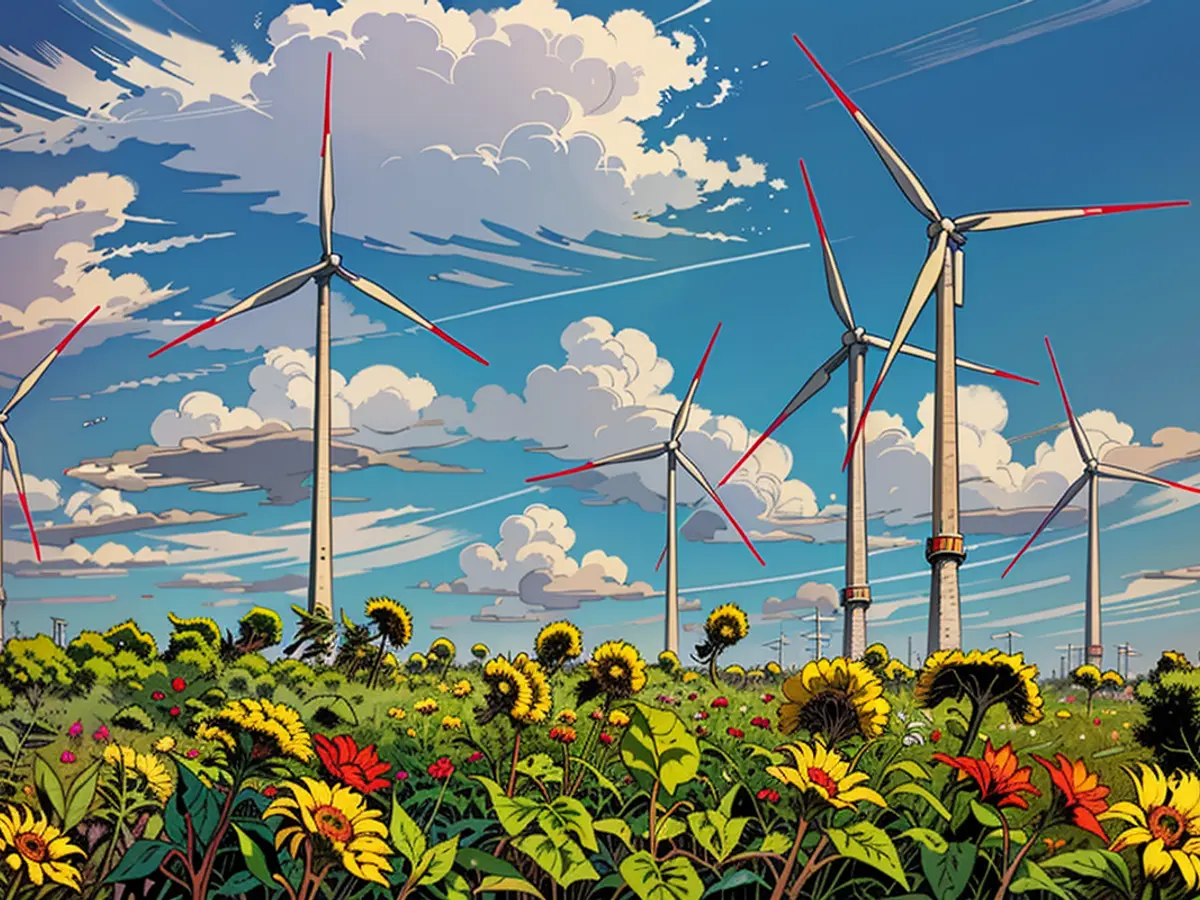Almost two-thirds of the electricity comes from renewable energy sources.
In the initial half of 2024, the portion of renewable energy in Germany's electric power production hit an all-time high. Specifically, wind energy saw significant growth, accounting for a third of the total and now being the primary energy source. Despite this, coal continues to be a factor.
According to the Federal Statistical Office, 135.2 billion kilowatt-hours of renewable energy were generated and distributed, making up 61.5% of Germany's domestic electricity production, surpassing the 53.3% from the first half of 2023. This represents the highest share of renewable energy for this period since 2018, when the survey began.
A total of 220 billion kilowatt-hours of electricity were generated and distributed in Germany during the first half of 2024, a 5.3% decrease compared to the same period the year prior. Conventional energy sources such as coal and gas saw a decrease of 21.8%, reducing their share to 38.5%.
Wind power is on the rise
Wind power is experiencing a significant surge. It increased by 11.9% to 73.4 billion kilowatt-hours, attributed to an unusually windy first half of 2024, according to statisticians. Now accounting for a third of domestic electricity production, wind power is "by far the most significant energy source." Photovoltaic power also saw growth, increasing by 8.3% to 30.5 billion kilowatt-hours, which represents 13.9% of the total. The boost in electricity production from photovoltaics is due to the addition of new plants.
Coal maintains its position as the second most important energy source, though it experienced a decline of more than a quarter. The amount of electricity generated from coal decreased by 26.4% to 45.9 billion kilowatt-hours, marking the smallest amount of coal-produced electricity in a half-year since 2018 when the survey began. Electricity production from natural gas saw a minor decrease by 1.8% to 32.1 billion kilowatt-hours, now accounting for 14.6% of the total. Due to the closure of the last three German nuclear power plants in April of the previous year, no nuclear energy is being fed into the grid.
Offshore wind power significantly contributed to the surge in wind power. In fact, the production from offshore wind farms increased by 12.8%, contributing to the total wind power output of 73.4 billion kilowatt-hours.
As a result of this growth, offshore wind power now accounts for approximately 31% of the wind energy generated in Germany during the first half of 2024.








